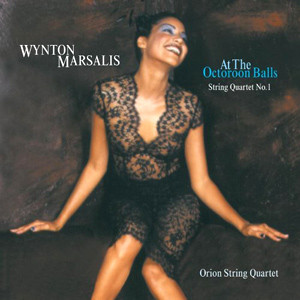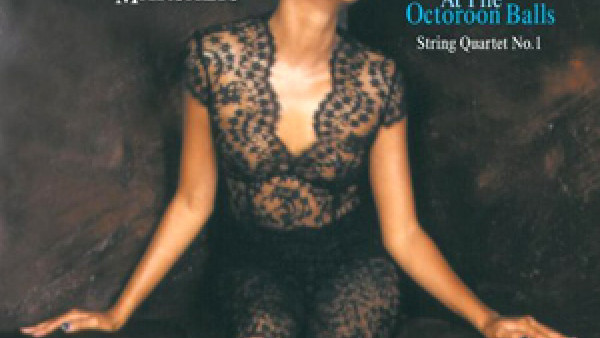Marsalis Officiates As Classical Weds Jazz
Lincoln Center’s executives have for years been trying to arrange marriages, or at least trysts, between the center’s constituents, and on Sunday afternoon at Alice Tully Hall one of these unions bore fruit. The Chamber Music Society of Lincoln Center and Jazz at Lincoln Center collaborated on a program that brought together jazz-inspired classics and improvisations in classic jazz styles. For the occasion, there was also a newly commissioned patch of common ground, “At the Octoroon Balls,” a string quartet by Wynton Marsalis, the trumpeter who directs the jazz series.
Mr. Marsalis’s seven-movement, 38-minute work was in every way the program’s centerpiece, both for those who are attracted to crossover endeavors and for those who find the concept distasteful. It is an ambitious piece, certainly. Meant to evoke the musical atmosphere of New Orleans, it begins with a 10-minute rhapsody for solo violin, followed by a string of character sketches, some almost abstract but most unmistakably direct tone paintings.
The most straightforward is “Hellbound Highball,” in which Mr. Marsalis has the quartet evoke a train, complete with its sliding whistles and screeching brakes. Train music is hardly a novelty, but using dissonances and odd twists, Mr. Marsalis found ways to personalize (and elevate) this gimmick. Equally, he found enough new twists on the ragtime style to avoid cliches in his finale, called “Rampart Street Row House Rag.”
Mr. Marsalis draws not only on jazz figuration and classical scoring techniques, but also on country fiddling moves, which crop up frequently. These disparate elements do not always sit together comfortably, and perhaps as he lives with the work longer (it is said to have been completed only two weeks ago), Mr. Marsalis will consider taking the editorial shears to it.
It might also have seemed less diffuse in the hands of a quartet better connected to the popular side of the blend. The Orion String Quartet is a fine ensemble, but this was not its music: indications in the score like “stomp out the rhythm” were complied with, but tepidly, and parts of the piece that should swing were sometimes laughably stiff.
A few of classical music’s raids on jazz preceded the Marsalis. Elmar Oliveira and Wu Han gave a rich-toned, vivid account of the Ravel Sonata for Violin and Piano, and the Orion players gave a sweet rendering of an early Gershwin Lullaby for String Quartet. A robust, often punchy reading of another jazz-tinged classic, Stravinsky’s “Histoire du Soldat,” closed the program.
Before the Stravinsky, Mr. Marsalis took up his trumpet and, accompanied by Marcus Roberts, produced a wonderfully dirty, muted sound in Jelly Roll Morton’s “Tom Cat Blues” and a kaleidoscopic variety of timbres in Mr. Roberts’s “Preach, Reverend, Preach.” But for sheer virtuosity and spirit, the performance of the afternoon was Mr. Roberts’s rendering of W. C. Handy’s “St. Louis Blues,” an astonishing improvisatory tour of jazz and blues styles. Mr. Roberts’s juxtapositions were often incongruous and unexpected. That was probably what made them work.
The program will be repeated tonight.
by Allan Kozinin
Source: The New York Times


